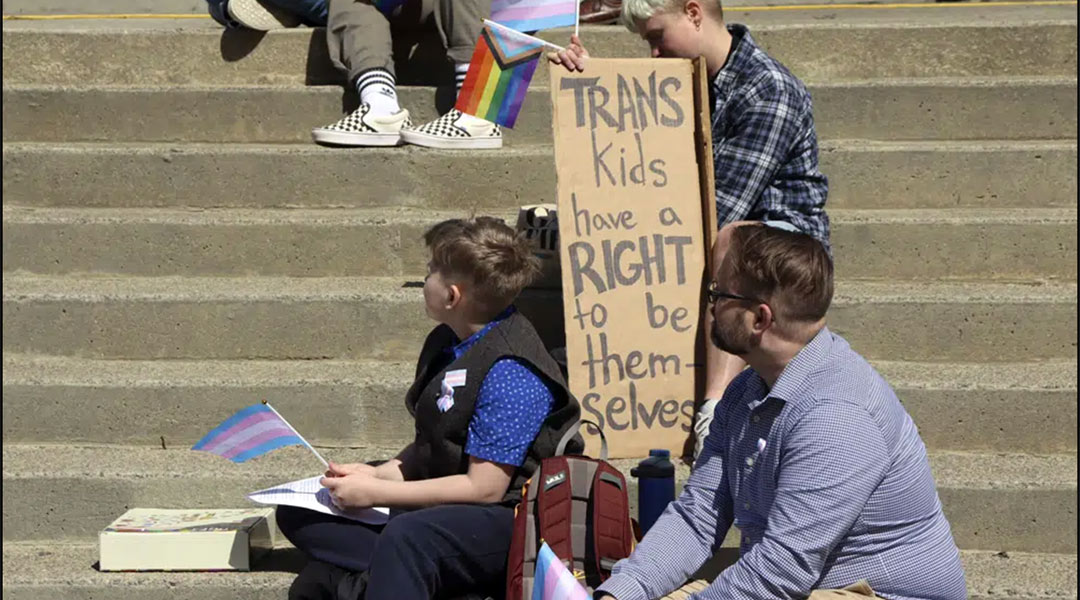Some protesters were unable to speak at a Senate subcommittee meeting on gender-identity bills. (Associated Press photo)
A South Carolina Senate committee has heard public testimony about, then advanced, two gender-focused bills.
More than 20 spectators and prospective speakers lined hallways Wednesday outside the meeting room as lawmakers addressed both bills.
Those who spoke first were in favor of a bill that would prohibit gender transition procedures for minors, prohibit the use of public funds for transition procedures and require public school staff to tell parents or guardians if they suspect a student identifies as a gender other than that assigned at birth.
“The ability to control our bodies and to make personal healthcare decisions is fundamental to our health, dignity and freedom,” said Lynn Teague, a vice president of the League of Women Voters of South Carolina.
That four of the first five speakers were against the bill surprised some lawmakers.
Chairman Richard Cash, R-Anderson, said the testimony would continue “in a way that we end up with the same number of testimonies for and against the bill” after multiple attempts to adjust the order of speakers.
Several speakers were parents of transgender children who have received what advocates call gender-affirming care.
David Wood’s daughter came out as transgender two years ago.
Her transition was like “watching a wilted plant stand up again,” he said.
Parents like Deborah Billings had similar experiences when her child came out as transgender. She said her family finds comfort in the fact that her child now feels seen and respected.
“Voting ‘no’ demonstrates that you value our joy,” Billings said.
Others testified in favor of the bill, saying that children and families need protection.
Laura Cooper, who once was a pediatrician, said children need protection from their parents and doctors because a child’s brain is not fully developed.
Parents, doctors and teachers can pressure children into getting gender-affirming care, Cooper said.
Cooper and another speaker, Elizabeth Enns, suggested watchful waiting instead of gender-affirming care.
Watchful waiting is an approach to medical issues in which doctors allow time to pass before intervening.
“Transitioning for minors is not the answer to helping these young people who are suffering in this way,” Enns said.
The second bill would modify how individuals change their gender markers on birth certificates, allowing only male or female markers.
No one spoke in favor of the bill. Instead, the committee heard multiple testimonies against the bill.
Jessica Spearman, a mental health therapist, said having incorrect gender markers attacks the privacy and safety of transgender people.
She said 46% of transgender individuals have suffered verbal abuse from misgendering, and 9% have been physically assaulted.
Barring changes to birth certificates harms both transgender and intersex children, said Michael O’Brien, a Charleston pediatrician.
Intersex people are born with a combination of traditionally male and female traits. Those traits can be physical, genetic or hormonal.
Nearly 1,000 intersex babies are born each year in South Carolina, O’Brien said.
Both bills passed 4-2 along party lines.



